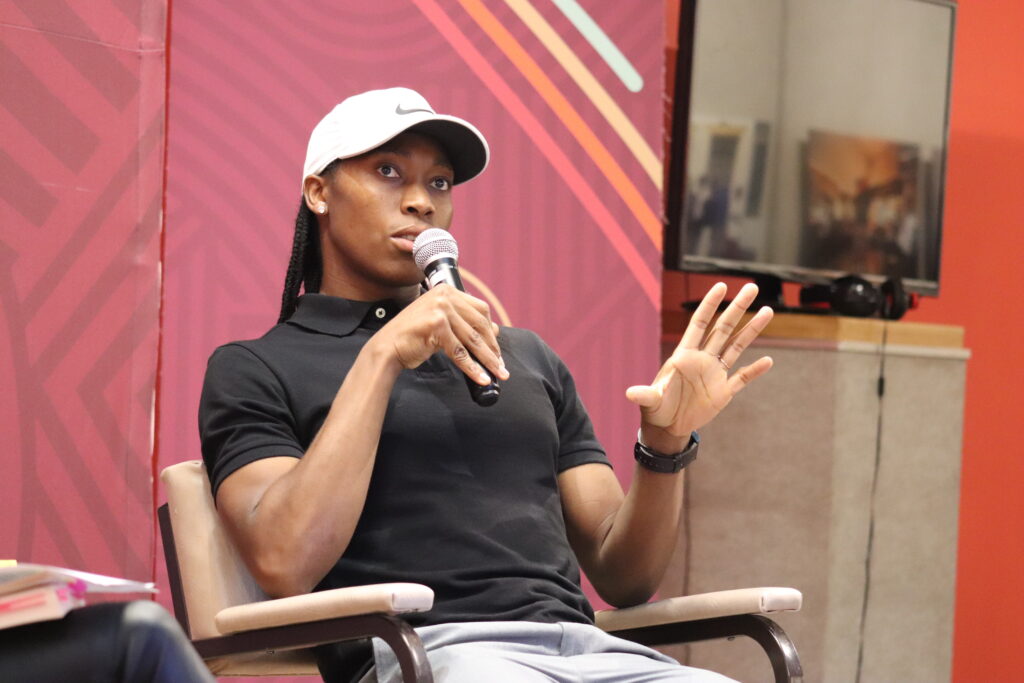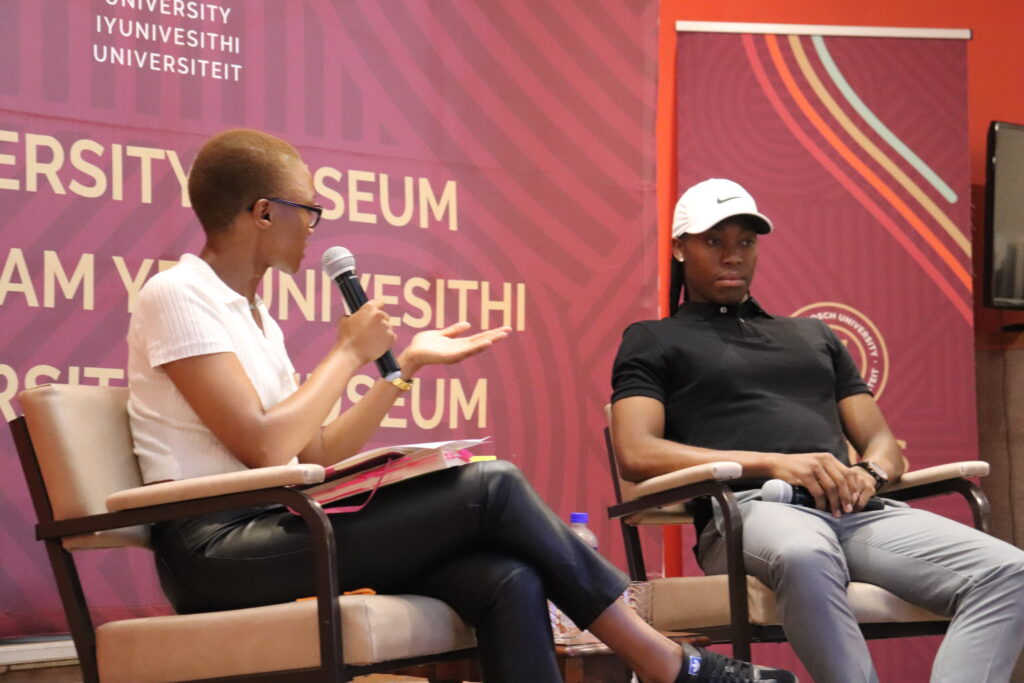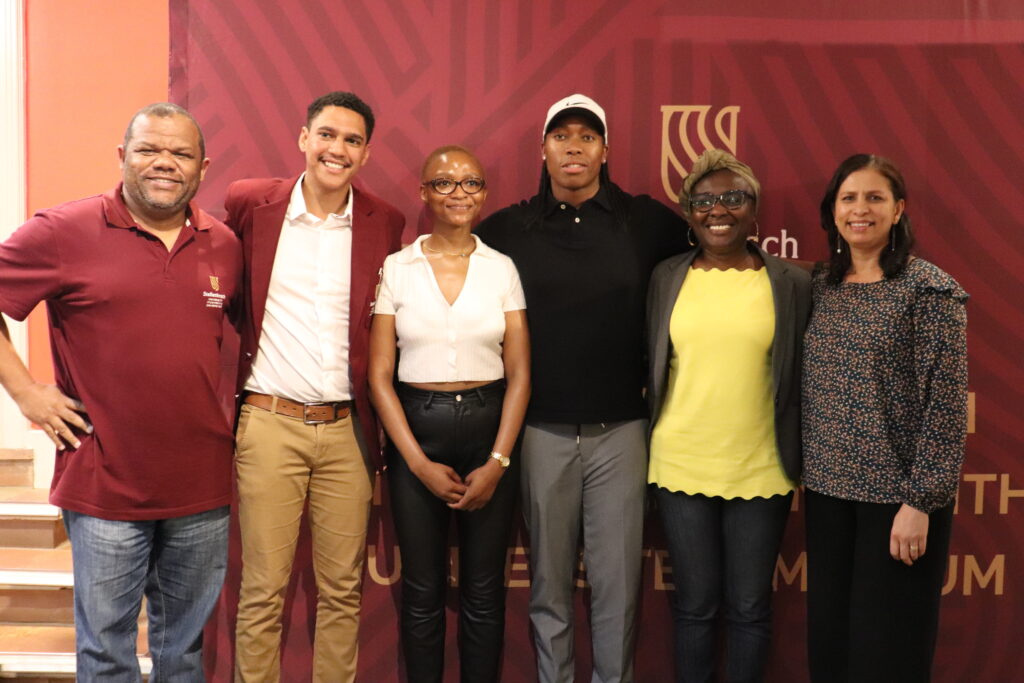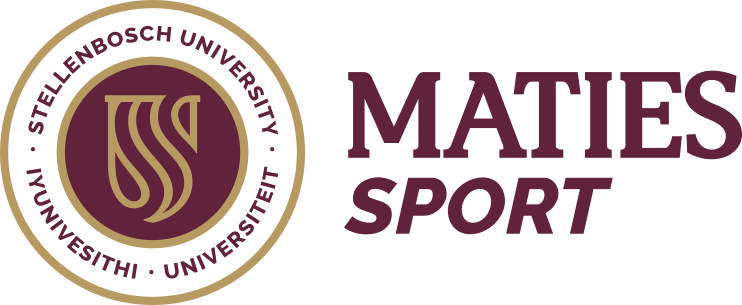It was a “full circle” moment for Caster Semenya – and for Stellenbosch – when the world-famous running icon revisited the town to talk to students about her memoir, to reminisce about her running career – and to urge young people to be true to themselves.
In April 2016, Semenya made South African athletic history at Stellenbosch’s Coetzenburg Stadium when she became the first person ever to win the 400 m, 800 m and 1500 m races in a single South African Senior Athletics Championships. She achieved this triple victory all in one day.
On that historic day, she won the races with Olympic qualifying times in the 400 m (50.74 seconds) and the 800 metre (1:58.45). She did this with only 50 minutes to spare between the two races. She then achieved a gold in the 1500 metres with a time of 4:10.93.
Semenya was greeted with warm applause when she addressed members of the university at the launch of her book, The Race To Be Myself which chronicles her journey from a small town in Limpopo to the peak of her athletics career, during which, among other achievements, she won two Olympic gold medals.
Poignantly recalling her achievement back in 2016 in Stellenbosch, she said she was delighted to be back at the site of her success more than seven years ago.
“Coetzenberg is one of those places I will cherish for the rest of my life. It’s here that I made history – winning three races in three hours.”
A notable guest at Semenya’s book launch was former National Athletics coach Wilfred Daniels, who was always a staunch supporter of Semenya and who praised the athlete for her determination and focus.
Born in Limpopo, Semenya showed signs of sporting prowess from an early age. She recalled in her talk how she loved playing soccer “with the boys” whilst growing up. She enrolled at the University of Pretoria where she started track running and was recognized as a huge talent.
Her athletic career, while stellar, was wracked with controversy. In August, 2009, Semenya won gold in the 800 metres at the World Championships in Berlin, but following this victory, questions were raised about her sex. The IAAF asked her to undergo a sex verification test to check whether she was female. In 2019 new World Athletics rules were imposed which prevented athletes like Semenya who have certain Differences of Sex Development (DSD) from taking part in certain events in the female classification, unless they take medication to suppress their testosterone levels. Semenya has taken legal action against the World Athletics rulings as discriminatory. At one stage, she was asked to take hormone-altering drugs in order to compete – an experience which she describes in the book as making her feel really sick.
Semenya, who is now giving back to society by coaching young athletes, said she waited more than a decade to tell her story, saying during the years in which she was surrounded by controversy, she’d preferred to “let my running do the talking”.
In her address, she spoke about her childhood and of her struggles as a teenager who showed signs of being different. The bush surrounding her village was where she built trust in herself. “It was just me against me. That was where I learnt to be responsible and accountable, to work hard and to focus.”
Semenya spoke with passion of her love for running, saying: “When I’m running, I feel free, I’m in my zone, I am light. It’s a place I call home.”
“She paid warm tribute to her family, saying they provided her with love and warmth throughout her life and never judged or criticized her for who she was. “My parents played a big role in my life, particularly in ensuring that I love myself. My self-discovery came through the love my parents gave me.
Semenya urged all parents to love their children “for who they are”, saying self-acceptance among young people depends on how their loved ones treat them. Her parents could have treated her like an outsider – “because I was always playing soccer, on top of the roof and not washing dishes” – but had, instead, just loved her.
“Self-rejection starts with the rejection from your parents. How your loved ones treat you is how your community will treat you.”
Semenya’s key message was for young people to accept and love themselves and to “seek self” – and not to live life based on what others think of them. “Embrace the way you were born … it’s OK to be different.”
By Sue Segar



